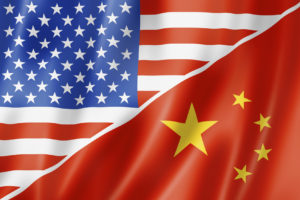
April 2, 2018//-Today, as China imposes tariffs on a range of US goods following the US administration’s penalties on imports of Chinese steel and aluminum, investors are evaluating the impact on the global economy and financial markets.
Goldman Sachs Asset Management’s (GSAM) Neill Nuttall, co-CIO of Global Portfolio Solutions, Suneil Mahindru, CIO of International Equity and Sam Finkelstein, co-deputy CIO of the Global Fixed Income team, discussed the implications of tariffs for China, Europe and the emerging markets on a recent webcast. Below are highlights from the conversation.
What do the trade tariffs mean for GSAM’s overall macro outlook?
Neill Nuttall: From a top-down macro level, the trade sanctions have had a relatively minor impact on the outlook for growth and inflation. As a result, we haven’t changed the broadly positive views that we outlined in both our macro and market outlooks for 2018 — although there may be greater risks around individual sectors and stocks.
We do, in fact, see opportunities in the current market volatility, rather than a signaling of greater challenges. For example, we would be selling some of the more cyclical areas of the market, as overall expectations and valuations have run up, and the rate of growth we saw early on in the year is just very hard to sustain.
The US administration has been angling for more trade actions against China. Sam, can you start by giving us your overall outlook on China and emerging markets, and how these trade actions will impact your views?
Sam Finkelstein: We have an upbeat outlook for the emerging market economies, which generally have more labor slack than the developed market economies. In China, we’re expecting 6.5 percent GDP growth this year, which is higher than the vast majority of countries in the world, in part because China has taken steps to address some of the leverage in its financial sector.
When economists evaluate the detrimental impact of trade wars, what matters is the magnitude of the goods that are encompassed, the degree of the tariffs and any retaliatory actions. We believe there’s still some reasonable optimism that the trade talks will lead to a more constructive negotiation. So at this point, we’re not altering our relatively positive outlook on emerging markets.
Suneil, the EU immediately came back with the strongest objections to the tariffs and was added to the exemption list. Give us your top down views on the region and your overall bottom up views on equities?
Suneil Mahindru: Similar to my other colleagues, we’ve been constructive on equities. If we think about the tariffs, Europe and to some extent Asia and Japan are more open, trade-based economies and therefore, will have more to lose than the US. But you also have to look through to the details.
China, for example, responded to the US steel tariffs by raising tariffs on pork exported from the US. But the largest US exporter has a parent company that is actually Chinese. So while the tariffs raise the risk profile for equities, this correction is, in some sense, actually a good thing because it creates winners and losers — which is good for active managers.
Can you give us a few examples?
SM: We tend to focus on service companies. Services are typically excluded from tariffs because service companies can find it difficult to tax or raise tariffs in a simple and consistent way. As an example, we’ve been increasing our positions in a global pest control company.
Why? Although the company is a global one, local businesses carry out the services and pest control will continue to be an issue whether we have trade wars or not. In other areas, investors might be tempted to avoid manufacturing, but again that’s too simplistic a view.
Here, we want to buy the smaller niche component companies because they tend to produce smaller components — many of which fall under the radar of tariffs. In addition, they tend to have less competition and more pricing power to pass through an increase in raw material costs.
And finally, we favor mid- and small-cap companies which are likely to be relatively immune if tariffs continue to rise versus mega-cap companies. Companies in the S&P 500, for example, are much more global in nature whereas roughly 80 percent of companies’ revenues in the Russell 2000 are generated domestically.
Goldman Sachs


